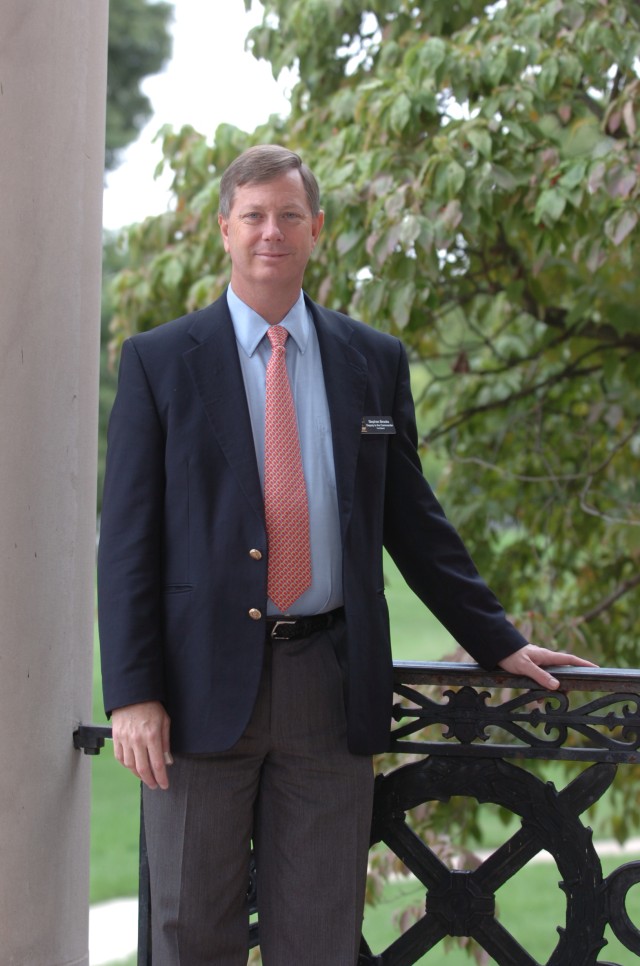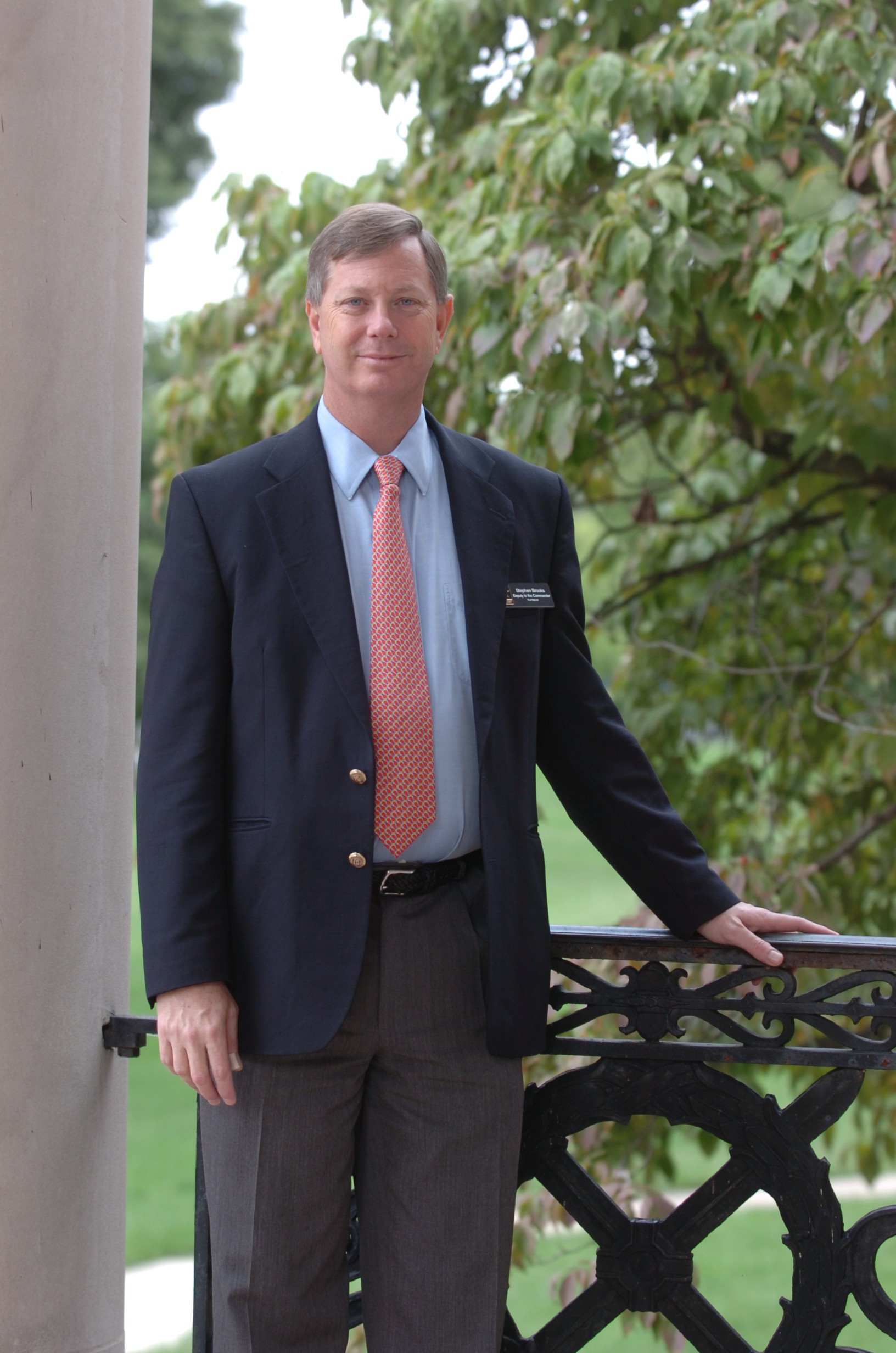FORT BELVOIR, Va. -- Some of the best things in life come unexpected. Just ask Stephen Brooks - Fort Belvoir's new deputy to the installation commander.
Brooks, an Atlanta native, arrived on post in August after serving as deputy garrison commander at Walter Reed Army Medical Center since 2006. A retired Army Chemical Corps colonel, Brooks spent 31 years in a number of command and staff positions, including as commander of a nuclear weapons storage site in Germany around the time the Berlin Wall was torn down. He officially retired from active-duty service the same year he started working at Walter Reed.
Brooks says he's ecstatic to be at Belvoir and admits his love affair with the installation and surrounding community began long before he started work in his new position. Not long after joining the Army out of the University of Georgia, he was stationed at Belvoir in 1976 as a private first class for four and a half months.
While attending advanced individual training, Brooks still recalls the day he decided to walk from his barracks on post to nearby Mount Vernon - an afternoon he never suspected would turn up later in life.
"I remember taking this walk and coming across a row of homes on this one street in Mount Vernon. The homes weren't finished yet, but I thought to myself that it would be a great place to live one day," Brooks said.
"Fast forward to 1993, my wife, Jeannie, and I are looking to buy a home and we stumbled across the exact same street I had walked to years earlier. I knew the location right away and couldn't believe it. It must have been an omen. We've been there ever since," he said.
Always fascinated with having a career in the military, Brooks got his introduction to Army life from his father, who was in the Army Reserves. Despite his father's death when Brooks was 13, he continued to pursue his dreams and eventually received a scholarship to the Georgia Military Academy, now known as the Woodward Academy, the largest independent prep school in the U.S.
After college, Brooks enlisted in the Army and attended Officer Candidate School two years later. He later became an officer while on assignment at Fort Leavenworth, Kan. and credits the Army with helping him realize the goals he set for himself.
"To be a leader, you must first learn to follow. I learned that from the Army and I'm a better person because of it," Brooks said. "The Army taught me so much and, you don't always hear this from people, but I had a lot of fun. I really did. I saw everything as an adventure and I'm blessed to have worn a uniform."
Through all his assignments, Brooks says nothing compares to the seven years he spent as an engineer assigned in Germany. From 1985 to 1992, he and his wife became good friends with another German couple and the two couples taught each other German and English.
A frequent visitor to East Berlin, Brooks also witnessed a historic visit by then Soviet president Mikhail Gorbachev.
"To be there during that time, particularly when the Berlin Wall came down, was incredible," Brooks said. "You can feel the emotion running through the people there. It was a profound experience and I'll never forget it."
Nor will he forget the camaraderie and relationships he's had over the course of his career. According to Brooks, the satisfaction of working as a team is what drove him to look for work as a civilian once he retired. As it turns out, he saw a posting at Walter Reed for a deputy garrison commander and knew that's what he wanted to do.
"I was actually teaching economics at the National Defense University when I came across the job posting. I thought there's nothing better than serving our nation's Wounded Warriors, so I pursued it aggressively," Brooks said. "It worked out that they were also interested and I was able to move my retirement up so I could start work there. Technically, I retired from the Army on a Friday and began working at Walter Reed the following Monday."
During his time there, Brooks said it was personally rewarding to look out his office window and see why he chose to work there. However, that's not to say there weren't any challenges along the way. Shortly after he arrived at Walter Reed, Brooks said a story was published in the Washington Post highlighting the hospital's poor conditions.
"Despite the criticism, that experience actually brought us closer together. I can say it was a privilege to be given the resources to redesign our infrastructure," Brooks said. "In two years, we spent $150 million on upgrades and that was no small feat. Everyone there shared great pride in that accomplishment and l learned that you make the best friends when working under stress."
In his new role at Belvoir, Brooks is the first to point out the learning curve he has to contend with. While Walter Reed sat on 100 acres, he said Belvoir is an installation of 18,000 acres with a work force expected to double in size over the next two years.
With that in mind, Brooks said his main job focus is to fight for resources that will accommodate the growing population
"You need funding to provide the quantity and quality of services for an installation like Belvoir. It's important to maintain infrastructure and have a working environment that people choose to work in," Brooks said.
"I knew JoAnn Blanks, the former deputy to the installation commander, personally. She left a legacy of high performance and I'm looking to continue that."
"I want our employees to know that the leadership here values them. My philosophy is to give them respect and empower them so they can reach a high standard themselves."
In recent weeks, Brooks has worked with representatives on ways to minimize congestion and traffic problems on post, in addition to hammering out details for next year's budget. Since coming aboard, he's made the rounds visiting different organizations and has been looking into the possibility of telecommuting for certain agencies.
Brooks said there is one thing he feels bad about.
"I consider this job a great honor and I really don't have any aspirations of doing anything else in life," Brooks said. "I love Fort Belvoir and the community is absolutely wonderful. I actually feel guilty getting paid to work here."


Social Sharing